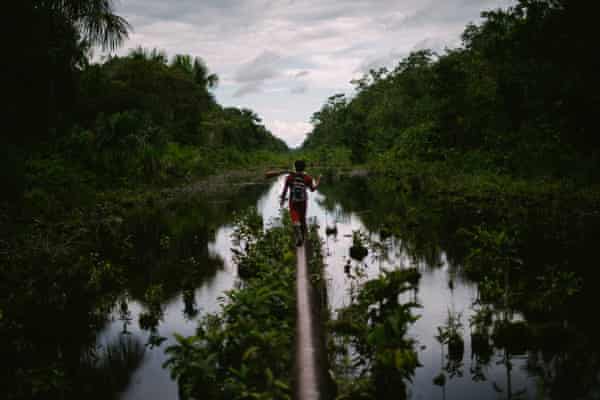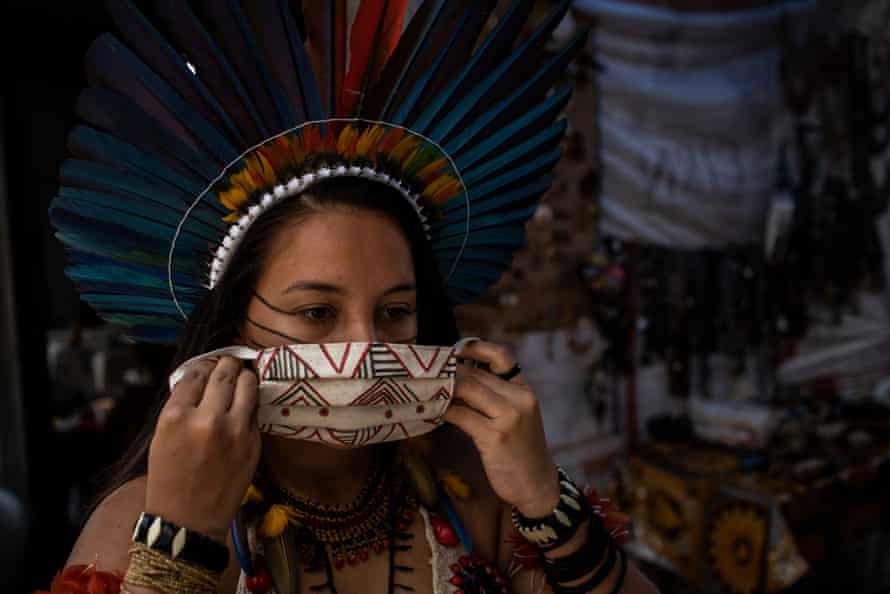Indigenous communities in some of the world’s most forested tropical countries have faced a wave of human rights abuses during the Covid-19 pandemic as governments prioritise extractive industries in economic recovery plans, according to a new report.
New mines, infrastructure projects and agricultural plantations in Brazil, Colombia, the Democratic Republic of the Congo (DRC), Indonesia and Peru are driving land grabs and violence against indigenous peoples as governments seek to revive economies hit by the pandemic, research by the NGO Forest Peoples Programme has found.
Social and environmental protections for indigenous communities have been set aside in the five countries in favour of new projects, leading to a rise in violence and deforestation on and around indigenous lands, according to the report produced by the NGO, Yale Law School researchers and the School of Law at Middlesex University London.

The authors warn that raw materials from the new extractive projects are likely to filter into global supply chains and enter western markets. They have called on businesses to strengthen protections for human rights and tropical forests.
“Indigenous peoples are seeing their rights stripped away as the lands that have long been their homes are stripped away as well,” said James Silk, Binger clinical professor of human rights at Yale Law School and co-author of the report.
“Corporations in the extractive industries have aggressively pushed governments to let them exploit resources on indigenous lands, promising economic revitalisation, but ignoring the devastating effect on indigenous communities. The result is a cascade of human rights violations and accelerating contributions to global warming.”
The report, titled Rolling Back Social and Environmental Safeguards in the Time of Covid-19, was produced in collaboration with affected communities. It found that the governments in Brazil, Colombia, DRC, Indonesia and Peru were prioritising the expansion of logging, industrial agriculture and the energy sector in or near indigenous territories.
Domestic and international laws that prohibit land grabs were not being enforced by the state, resulting in a rise in deforestation in 2020 that was likely to continue this year, the researchers said.
Indigenous people who try to assert their rights are facing increased threat of criminal prosecution and arrest, according to the report.
“Indigenous groups started contacting organisations like the Forest Peoples Programme early on in the pandemic. Governments were prioritising big oil, mining projects and infrastructure projects at a time when lockdowns were happening. Communities were unable to protect themselves,” Cathal Doyle of the School of Law at Middlesex University said.
“Studies repeatedly show that the best, most conserved biodiversity and forests are in lands where you have indigenous communities. We’re dependent on them for addressing the existential crises that we face in the coming decades,” he continued.

“Research is coming out talking about the importance of these forests and for preventing future pandemics. So it’s ironic that we seem to be going down the path of destroying them as a result of a pandemic.”
According to the World Bank, while indigenous peoples make up about 6% of the global population, they safeguard 80% of the world’s remaining biodiversity.
Find more age of extinction coverage here, and follow biodiversity reporters Phoebe Weston and Patrick Greenfield on Twitter for all the latest news and features